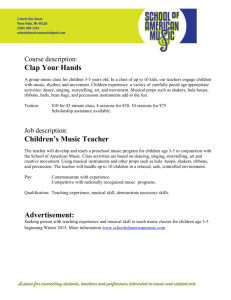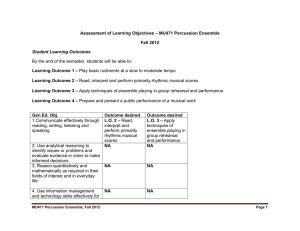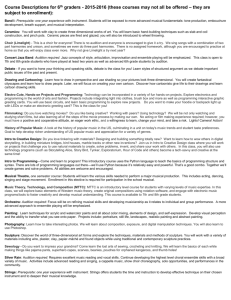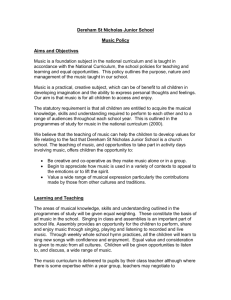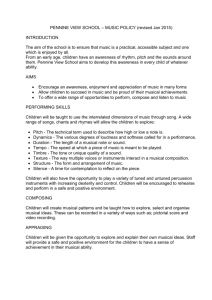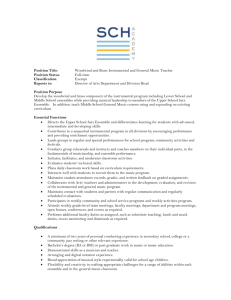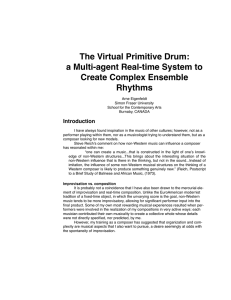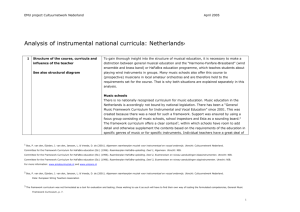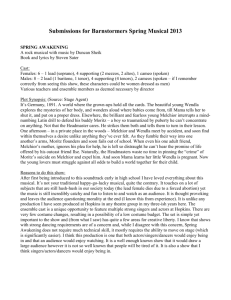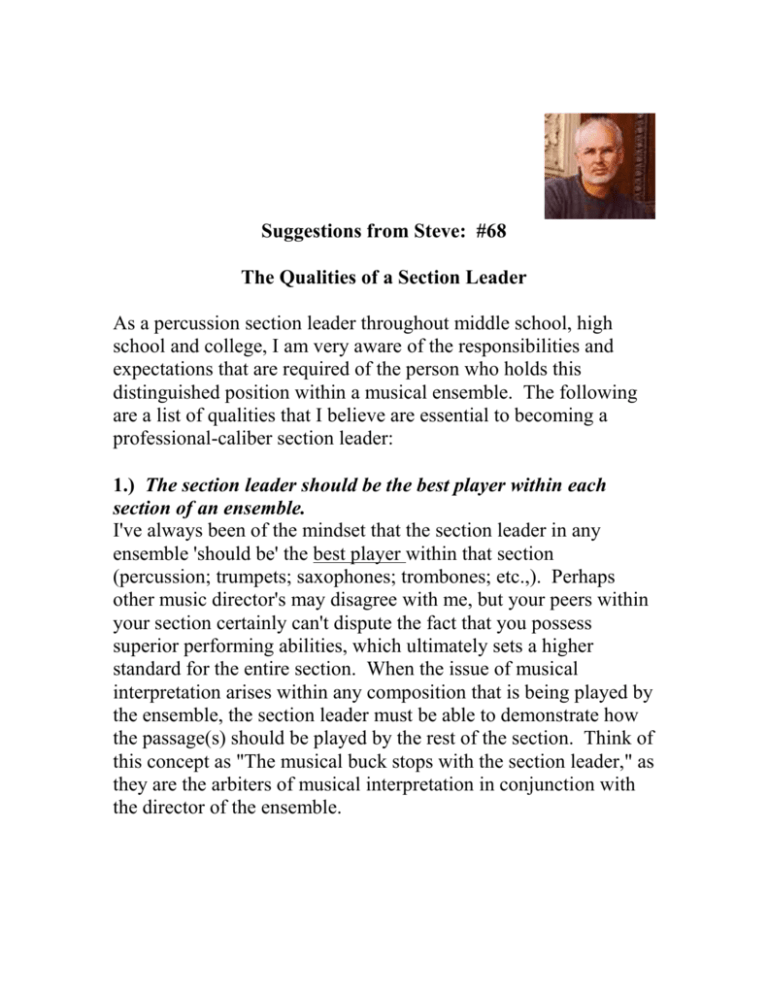
Suggestions from Steve: #68
The Qualities of a Section Leader
As a percussion section leader throughout middle school, high
school and college, I am very aware of the responsibilities and
expectations that are required of the person who holds this
distinguished position within a musical ensemble. The following
are a list of qualities that I believe are essential to becoming a
professional-caliber section leader:
1.) The section leader should be the best player within each
section of an ensemble.
I've always been of the mindset that the section leader in any
ensemble 'should be' the best player within that section
(percussion; trumpets; saxophones; trombones; etc.,). Perhaps
other music director's may disagree with me, but your peers within
your section certainly can't dispute the fact that you possess
superior performing abilities, which ultimately sets a higher
standard for the entire section. When the issue of musical
interpretation arises within any composition that is being played by
the ensemble, the section leader must be able to demonstrate how
the passage(s) should be played by the rest of the section. Think of
this concept as "The musical buck stops with the section leader," as
they are the arbiters of musical interpretation in conjunction with
the director of the ensemble.
If you accept this premise, the section leader must be a superior
player as others are dependent upon his or her musical expertise.
Simply stated, the section leader "leads" the rest of the section
members, musically and personally.
2.) The section leader should be versatile.
In certain sections within specific ensembles, versatility is a
particularly invaluable and necessary talent for the players. For
instance, if you are a percussionist in concert/symphonic band or
orchestra, you should strive to become the best player on all of the
primary instruments (snare drum; mallets; timpani and battery
percussion). If you are saxophonist in a jazz band, you should
excel on your primary saxophone as well as the doubling
instruments (soprano sax; clarinet; flute; etc.,). Possessing
superior playing abilities on all of these instruments requires true
versatility and ultimately, virtuosity as you continue to progress in
your musical studies. Versatility also applies to mastering multiple
performing styles as the musical literature in all performing
disciplines can be quite diverse.
3.) A section leader should possess superb sight-reading skills.
Many times during music rehearsals, music is passed out by the
conductor and performed immediately thereafter by the ensemble.
The section leader must be able to instantaneously sight-read his or
her part in addition to possibly assisting the other section players
with their parts. Therefore, in order to accomplish these musical
tasks, a section leader should possess sight-reading skills that are
consistent and excellent.
4.) A section leader must be a confident; mature; responsible
and organized person.
The section leader is the musical liaison between the conductor and
the other members in his or her section. He or she must be able to
communicate the musical expectations of the conductor to the
section members in a diplomatic and confident manner. Moreover,
the section leader is often responsible for assigning parts
(percussion section) to the section members. This task requires
personal responsibility and organizational skills that will greatly
impact the overall success of how well the section operates on a
daily basis. Maturity is something that happens over time, but if
you demonstrate personal leadership skills and act in a mature
manner, you will become a true asset to your conductor, section
and ensemble.
Copyright 2007 Steve Raybine
All Rights Reserved


